Elevate Your Digital Transformation with Tailored Automation.
Discover the perfect blend of automation technologies for your unique goals.
Explore the Unique Strengths of Each Automation Technology And Use Them in Tandem or Independently
Agentic AI
Agentic AI (AAI) is the next frontier of automation, helping businesses automate and scale faster. AAI-enabled intelligent agents go beyond execution to think, decide, and act autonomously. Unlike traditional AI, Agentic AI enables processes to sense, decide, and act dynamically to achieve defined goals. AAI agents seamlessly collaborate with humans and systems alike, managing dynamic workflows and optimizing processes with minimal oversight. When integrated with other complementary automation technologies, Agentic AI enables businesses to orchestrate end-to-end operations — moving to new levels of efficiency, innovation, and enterprise-wide autonomy.
Learn more about Agentic AI.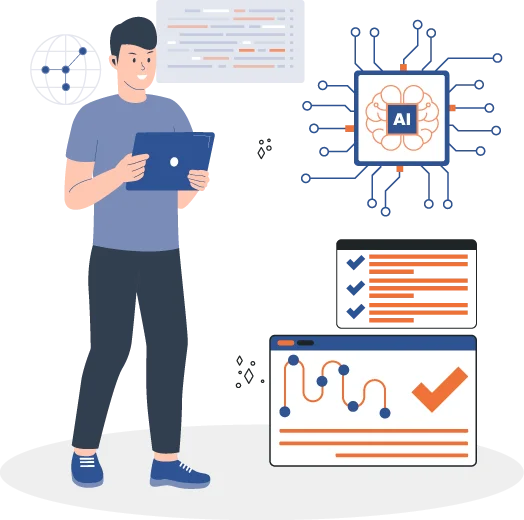
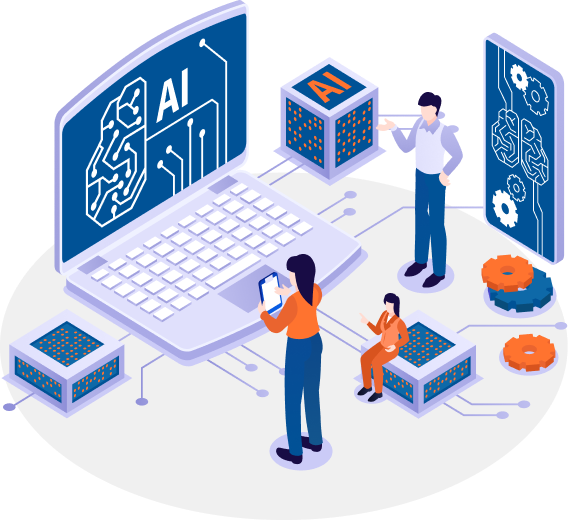
Intelligent Automation (IA)
Intelligent Automation is a holistic approach towards automation that combines several technologies such as Robotic Process Automation, Low-Code Process Automation, Generative AI, and various forms of Artificial Intelligence for the end-to-end automation of a wide range of business processes. A comprehensive intelligent automation platform serves as a link between multiple systems to coordinate and automate the entire workflow process, including both automated tasks and those completed by humans. One of the many benefits of IA is enhanced productivity, higher employee engagement, greater accuracy, rapid scalability, and improved insights into your processes.
Learn more about Intelligent Automation and its use cases.Generative AI (GenAI)
Generative AI is transforming industries and business processes, from coding and drug development to product designs. GenAI leverages existing data to create unique, realistic content, including images, videos, music, text, and software code. GenAI relies on advanced AI foundation models called large language models (LLMs) that are trained on vast datasets and can be further refined for specific tasks. The technology fulfills user requests and proactively offers suggestions, enhancing employee productivity. With the increasing adoption of GenAI technology, businesses are already witnessing a shift in human roles and involvement in various tasks and strategic endeavors.
Learn more about generative AI and How it can impact various job descriptions.
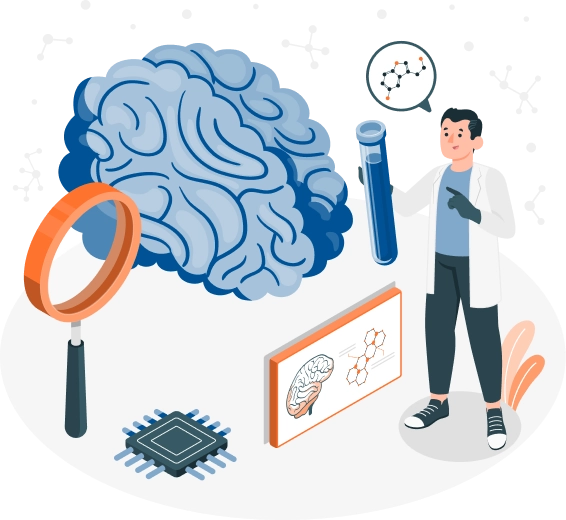
Artificial Intelligence (AI)
AI technologies help you automate more complex processes with minimal human interventions. When AI is coupled with technologies such as Low-Code Process Automation, GenAI, and RPA, businesses can automate more complex processes requiring human-like intelligence. Machine learning (ML), Natural Language Processing (NPL), Intelligent Optical Character Recognition (OCR), and many such intelligent automation technologies come under the umbrella of AI. They allow computers to read, learn, and comprehend data just like humans, making it possible to automate more tasks within a given process. Aside from automating tasks, they can also be used to predict scenarios; for example, you could use machine learning to predict how customers will respond to a new marketing campaign.
Discover how AI, NLP and automation can revolutionize your business.Intelligent Document Processing
Intelligent Document Processing (IDP) utilizes AI-assisted technologies to extract, collate, and comprehend data from various documents. It allows for a fast and efficient way to read documents, take note of relevant information, transcribe it elsewhere, and organize it for future use – all in much less time than a human would take. It is expected that IDP will experience rapid growth in the coming five years, enabling workers to focus their efforts on tasks requiring more specialized skills. Investing the time and resources into developing an IDP solution now can help businesses remain a step ahead of the competitive landscape and equip themselves to meet any surge in the demand for document processing.
Discover more about IDP use cases and benefits.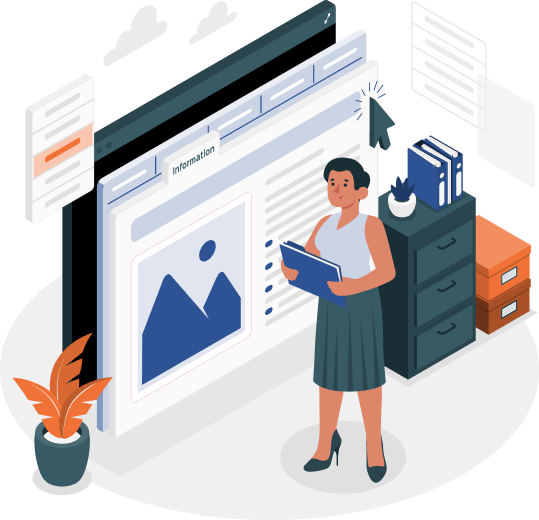
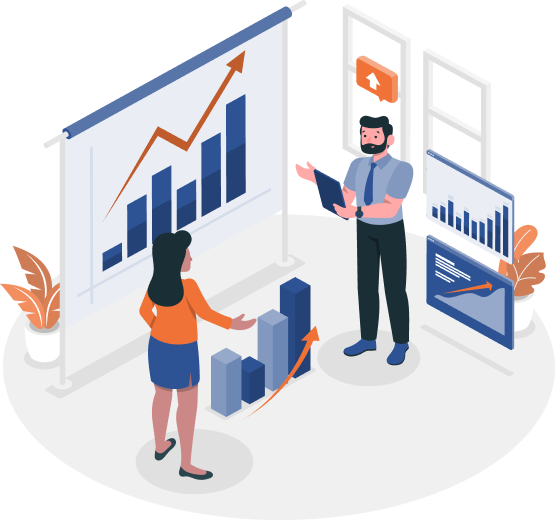
Low-Code Process Automation (LPA)
Low-code process automation platforms are swiftly emerging as the preferred solution for startups and enterprises seeking to design, optimize, and automate their business processes efficiently and cost-effectively. These platforms simplify application development through intuitive commands and visual drag-and-drop functionalities.
They are leveraged by professional developers and “citizen developers”—business users with a deep understanding of their operational needs—to develop applications, generate APIs, integrate business systems, and enhance productivity. The no-/low-code interface lets employees quickly build custom applications; for example, an Agile project manager might develop a sprint review app to unify discussions and decisions, enhancing team collaboration.
Business Process Automation (BPA)
BPA is often referred to as Intelligent Automation and Hyperautomation. BPA also focuses on automating a process in its entirety. For example, BPA could be used to streamline invoice processing. A Bot extracts pertinent information from invoices, which an accountant would then assess for accuracy before the Bot stores that information in the appropriate digital folder. A BPA platform enables the integration of automated and manual tasks, allowing Bots to act as co-workers instead of simple computer programs.
Download a guide detailing a six-step strategy for successful BPA implementation.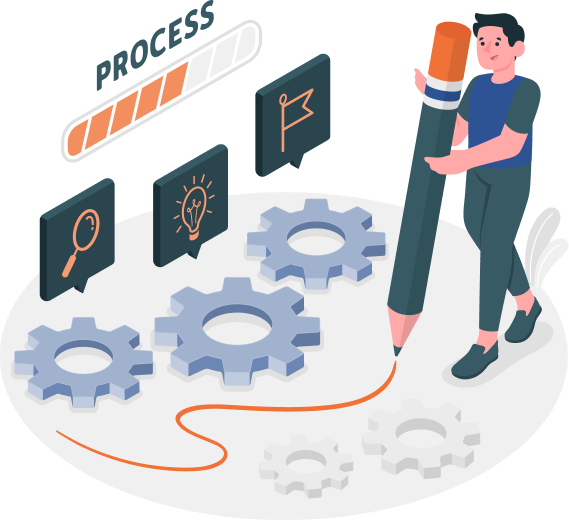
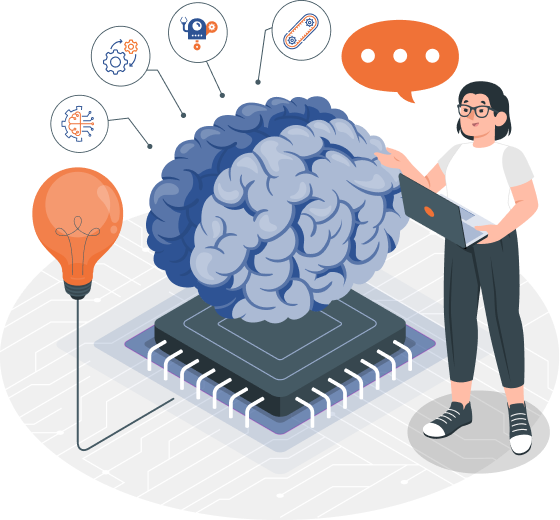
Hyperautomation
Hyperautomation, sometimes used interchangeably with Intelligent Automation, is the same approach of using advanced automation technologies to eliminate as many manual tasks as possible and free up employees to focus on tasks requiring human intelligence. Gartner, Inc. coined and defined Hyperautomation as an approach to moving beyond RPA by combining AI, ML, NLP, process discovery, and other automation technologies to augment business processes and achieve end-to-end automation.
Discover more about the critical components of Hyperautomation and its benefits.Robotic Process Automation (RPA)
RPA uses software Bots to automate monotonous, high-volume, and rules-based tasks within or between computer systems. Responding to customer inquiries, generating and processing invoices, lead qualification for the sales team, and sourcing and transcribing data from one system to another are a few examples of RPA use cases. RPA Bots work faster, 24×7, and produce accurate results as they help reduce costs, improve efficiency, and free up human resources. With the introduction of AI and GenAI technologies, businesses are moving beyond just RPA-enabled automation to achieve more significant automation impact.
Discover industry-wide RPA case studies.
FAQs
What is Automation?
Automation is the process of automating tasks or processes using a single or a combination of advanced technologies. Automation can help you make your business more efficient and effective by offloading work from employees to software robots that work around the clock producing accurate results more quickly.
When combined, IDP, AI, BPM, and other automation technologies can help you automate as many processes as possible from beginning to end. The work can be orchestrated between humans and bots to achieve an effective balance and let humans intervene wherever necessary for critical decision-making.
What are the benefits of Automation?
There are several benefits of automation including:
- Reduced time spent on manual tasks: Automation eliminates employees’ need to perform repetitive and time-consuming tasks. Automation frees up valuable time for them to focus on more challenging and innovative work.
- Increased accuracy: As tasks are automated, there is a reduced risk of human error creeping into the process, resulting in greater accuracy and reliability.
- Improved efficiency: Automation allows businesses to streamline operations and significantly reduce costs.
Why does your business need automation?
Automation is no longer a good to have technology. It has become a necessity for businesses to achieve a competitive edge. The immediate benefits automation delivers includes rapid ROI, and providing the ability to allow humans to apply their intelligence where it is most needed. Automation with advanced AI technologies can streamline any business processes at an more incredible speed with higher efficiency.
Which industries can leverage automation?
Automation can be a vital tool for any business, but it is particularly beneficial in industries where accuracy and speed are essential. Manufacturing, health care, finance, retail, and advertising are a few industries that can benefit from automation. Businesses can start small by picking those processes that are easy to automate and require less human intervention. Once the initial results are achieved, they can begin leveraging more intelligent automation technologies and expand the scope of automation.
How can I start my automation journey?
There are several ways to begin your automation journey. Of course, you can perform your own research once you have identified the need for automation, but the ideal way is to consult an automation specialist. At Nividous, we offer a quick start guarantee deploying an RPA bot into production within 4 to 6 weeks. This program is built with a focus on helping you quickly start your automation journey on the right foot.
Discover more about the offer and how to get started